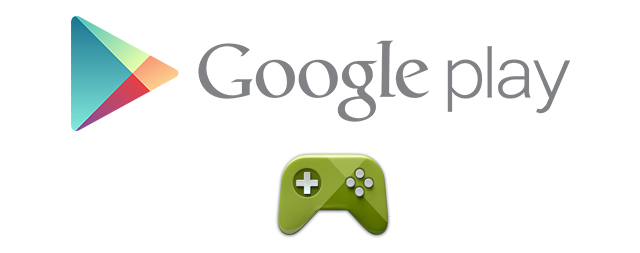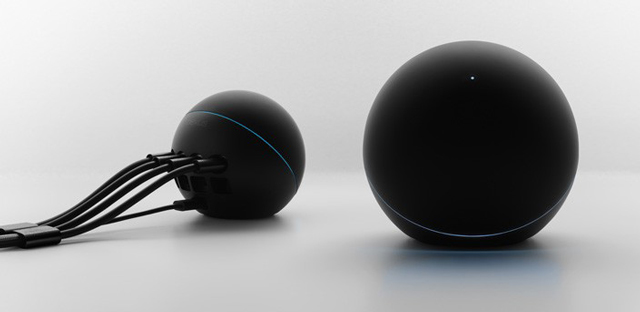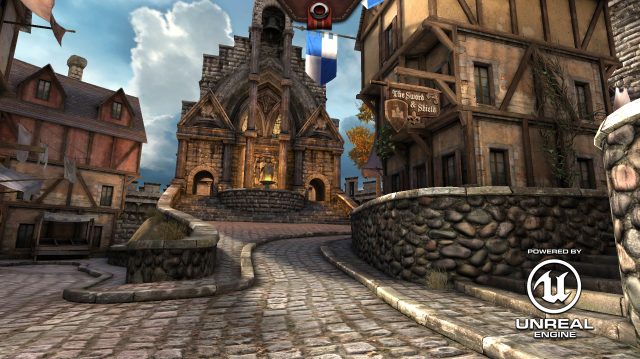
While some companies pride themselves on secrecy, Google doesn't seem interested in surprises. The future of the company is often proudly demonstrated on a stage in front of hundreds of people or announced to the world via a company acquisition press release. Everything Google mentions publicly is for a reason, and if you just listen, you'll pick up a few hints and get a pretty good idea of what the company is working on.
This post is a collection of all the hints, announcements, and acquisitions we've heard from Google lately, along with some common sense speculation. We're not predicting or guaranteeing that all of these projects will become consumer products in 2014; it's more of a "to-do list" for Google. Like any to-do list, it's not heavy on ETAs—you can complete an item and cross it off the list, or you can procrastinate and let that list item hang around another year. So to prepare for what promises to be a wild year of Google news, here's everything we know about the company's future plans.
A big gaming push

Mobile devices have slowly been eroding the traditional gaming market. Portable gaming systems have been hit especially hard thanks to the proliferation of smartphones. The 3DS and PSP may have better controls and more in-depth games, but to repurpose an old camera adage: the best gaming system is the one you have with you. Everyone carries a cell phone, and when that cell phone is capable of running great-looking, in-depth games, a dedicated gaming system becomes a much harder sell.
Apple and Google both seem interested in leveraging mobile gaming success into a spot in the living room. The smartphone industry's cheap hardware and app-enabled "do everything" mentality could create a compelling living room device. Just as point-and-shoot cameras, MP3 players, handheld gaming systems, and flip phones were casualties in the smartphone revolution, the use case of "home video game console" could be swallowed up by a do-everything set-top box.
With much looser size, heat, and power constraints, a set-top smartphone could be much more powerful than its portable, battery-powered brethren. As the success of the Nintendo Wii proved, fun games and new input devices trump graphics in the mainstream gaming marketplace, and consumers will buy a gaming system if it looks fun enough. Microsoft, Sony, and Nintendo are all grafting smartphone and cable box functionality (apps, multitasking, Web browsers, TV guides) onto a gaming system, but the other possible path would be to put bigger gaming functionality and a TV interface into a smartphone-in-a-box.
A first-party studio
One of the first big hints of Google's gaming ambition came from Noah Falstein, an influential game designer who formerly worked for LucasArts, 3DO, and Dreamworks Interactive. In May of last year, Falstein spilled the beans on Google's upcoming plans when he updated his LinkedIn profile to read "Chief Game Designer at Android Play Studio.”
Google appears to be starting up a game studio of its own, just like how Nintendo, Sony, and Microsoft own gaming developers that produce exclusive flagship software for company gaming systems. First-party game developers can be a big boost to a gaming platform by leading by example and helping the platform owner realize the company's vision. Google's Android apps show the rest of the ecosystem how apps should be made, so it only makes sense that Google would want to do the same thing on the gaming side. Google's studio could take advantage of the newest features of Android without having to worry about things like install base or profitability, focusing strictly on demonstrating the newest techniques to the rest of the ecosystem.
If Google does create a game studio, it would actually be its second in-house game developer. The company already owns NianticLabs, the makers of the location-based game Ingress. But that company doesn't fulfill the traditional first-party developer role—NianticLabs seems to be focused on doing its own thing. "Android Play Studio" (Falstein probably meant "Google Play Studio") sounds much more like a flagship first-party studio.
Gaming renovations
Google has been telling developers to prepare for an Android gaming growth spurt as well. The company publicly announced to developers that it would be tripling the number of gaming categories on the Play Store in February 2014.
At Google I/O 2013, Google announced a gaming service back-end called Google Play Games. The device closely mirrors Xbox Live or Apple's Game Center, providing multiplayer matchmaking, achievements, cloud saves, and identity services to game developers. Android also supports game controllers over USB or Bluetooth. In fact, if you grab a USB On-The-Go cable, an Xbox 360 controller will work out of the box for many games.
Game console/set-top box

The Wall Street Journal, typically a publication that's reliable when it comes to Google rumors, has reported that the company is going all out in the gaming space and wants to launch a home gaming console of its own. The console would most likely be similar to the Apple TV, basically a bunch of smartphone parts in a set-top box form factor. Android's ability to adapt to different screen sizes means that Google could launch with an all-encompassing store right off the bat.
Google set-top box rumblings have been going on for a while. We first heard of the project when the Journal reported that Google was secretly showing off a prototype at CES 2013. The report described Hangouts video conferencing as a core feature. The device had a video camera and a motion sensor—presumably for Kinect-like controls—and could run Android apps. The paper originally pegged the device as being announced at Google I/O 2013, but it also said the device may have been scrapped in favor of the Chromecast. I/O 2013 came and went, and we never heard a peep about the box.
One of Google's recent moves that could help with a Kinect-style interface is the acquisition of Flutter, a company that specialized in gesture recognition. While the Kinect recognizes gestures using $150 worth of cameras, infrared fields, and processors, Flutter could detect hand gestures using only a stock webcam. Of course, Flutter wasn't nearly as robust as the Kinect, but it was surprisingly capable while using a minimal amount of hardware. A thumb gesture left or right would trigger "previous" or "next" commands, and a "hand up" gesture would do play and pause. That's not nearly enough to control a television interface, but with a little more hardware, the Flutter team could probably come up with a way to navigate a UI.
We've also heard a report (subscription required) from the same Journal writers (now at The Information) claiming that a set-top-box called the "Nexus TV" is in the works—likely the same device as the game console. The Information stated the device is on track to launch in the first half of this year. While Google TV has hung around for a few years, Google has never taken the project seriously or put a ton of resources behind it. The Google TV folks never decided on a decent input device, and the software design is nowhere near the standard set by other Google interfaces—Google TV is one of the ugliest products Google makes. A "Nexus TV" would basically be a revamped, rebranded version of Google TV.
Google's only successful living room product is the Chromecast, a $35 HDMI dongle that provides easy streaming from Chrome and a variety of Android apps. The problem with the Chromecast is that it is strictly a streaming stick—it can't run Android apps, and it lacks the power to do any sort of client-side graphics rendering. If Google really wants to take over the living room, it will need something more powerful.
Chrome gaming

Android is not necessarily the quintessential gaming platform for Google. Google I/O 2013 featured a ton of gaming demos, and most of them were actually running on Chrome (often Chrome running on Android, but still). Thanks to HTML5 technologies like WebGL, browsers are now able to pump out some serious graphics using your device's GPU. If you don't believe that a browser can be a serious gaming platform, check out Epic's Unreal Engine 3 running in a browser. Granted, this demo was made by Epic and Mozilla, but the demo and WebGL run just fine on Chrome. Google showed off a WebGL game at Google I/O, but it didn't bring in the heavy-hitting game designers at Epic.
Google has quietly been building up Chrome's gaming foundation: Google Play Games, the matchmaking multiplayer service, also runs on Chrome, and Chrome has full gamepad support. Most of Google's efforts in the Chrome gaming space have demonstrated the ability to sync multiple devices together using websockets. One demo showed a simple racetrack that spanned multiple Android devices running Chrome. Several other demos have shown Chrome running on a mobile device synced to a desktop version of Chrome—the desktop acted as the main display and the mobile device acted as a game controller.
Our guess is that Chrome isn't quite ready for prime time gaming yet, although an Android TV box would be the best of both worlds. It could run native gaming apps and run whatever Chrome-enabled gaming craziness Google comes up with.
reader comments
87